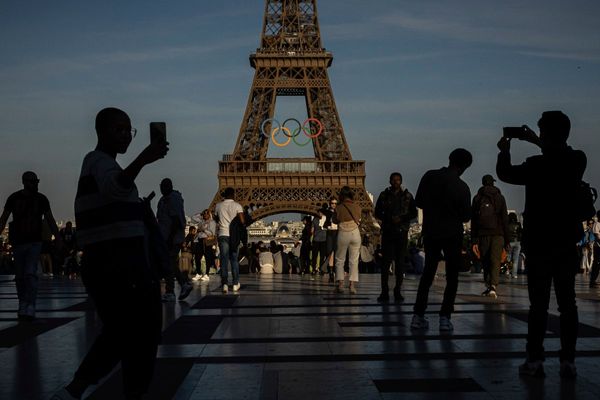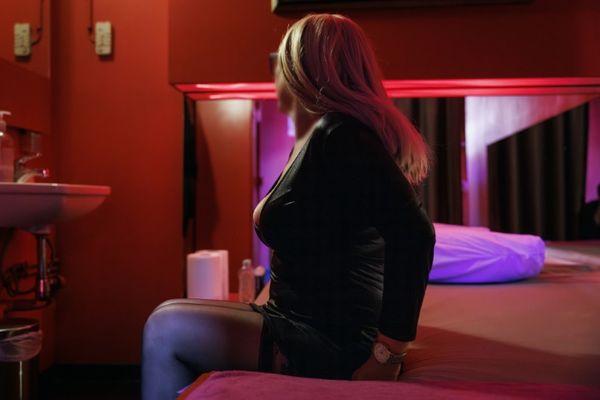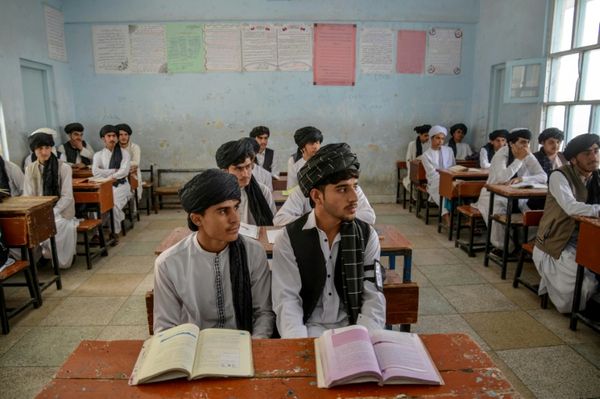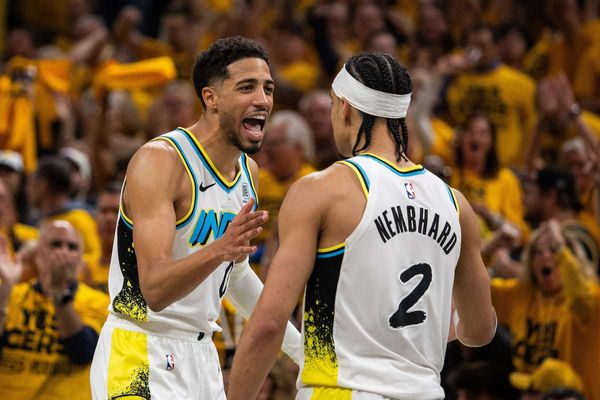
Faiza Shaheen is composed when I meet her at home in Chingford, north-east London, all things considered. It is three days after she had been summoned to an interview with three members of Labour’s national executive committee (NEC) to answer for a series of tweets dating back to 2014, which they said damaged the party’s electoral chances. “They decided my fate, on a 40-minute Zoom meeting, half of which the baby was crying through,” she says. She’s holding her four-and-a-half-month-old son now. He beams at me throughout our interview.
She was deselected as Labour’s candidate for Chingford and Woodford Green on Wednesday 29 May. It’s a move that stunned her supporters locally, and reverberated far beyond her constituency. A recording of that meeting made it on to the Today programme. A week later, Shaheen has announced her decision to stand as an independent. “If you’d told me a week ago that this is where we’d be, I wouldn’t have believed it,” she messaged me. “I’ve had hundreds of messages from people in my community, urging me to run. They are tired of the Tories but now feel they can’t trust Labour.”
It all happened pretty fast: on the afternoon of Tuesday 28 May, Shaheen was out canvassing with about 40 local party members, who had selected her as the prospective parliamentary candidate for Chingford and Woodford Green in 2018, then again in 2022. The constituency has, since its creation in 1997, been held by Iain Duncan Smith, whose position has gone from unassailable to precarious as the Conservatives have come undone. On the Saturday before that, she gave a speech in the constituency. She said: “When we were little, my dad used to say to us, ‘We always vote Labour, but it’s always going to be Tory here.’” But, she added: “‘It’s finally going to be Labour’, and everyone was so happy.”
It was on that canvass that one of the volunteers noticed the Labour party’s campaigning app wasn’t working, which was because Shaheen had already lost access to it. Her phone was pinging with messages because news of her candidacy getting blocked had been briefed to journalists, before she had even seen an email from the NEC asking her to appear before the panel just five hours later.
The problematic historic tweets included one that congratulated an old colleague who had decided to stand as a Green councillor. Another was liking a tweet that called for a boycott of Israeli goods, during the 2014 Gaza war.
A second “like” was for a tweet that included a sketch from the US comedy show The Daily Show. In the tweet, the commentator who posted the sketch described the methods of the “Israel lobby” in the US. As the news travelled that Shaheen was no longer Labour’s candidate, she was invited on to the BBC’s Newsnight programme, where she said she didn’t remember liking that tweet – it had been liked in the middle of the night when she was likely to have been breastfeeding – but that she recognised that “it plays into a trope and I absolutely don’t agree with that and I’m sorry about that”. She also mentioned that she had organised an interfaith vigil with a local rabbi after the Hamas attacks.
Another tweet of Shaheen’s, from 2021, was posted after the broadcaster Trevor Phillips was readmitted into the Labour party after a suspension over allegations of Islamophobia. In the tweet, she wrote: “Muslims and the prejudices we face don’t matter.” This was also cited by the NEC. “All the work rooting out antisemitism, that would never have happened if people weren’t allowed to call out their own party,” Shaheen says.
Then there’s a video she took of a pro-Palestinian march in Liverpool Street, in London, last November – as a passerby rather than a protester – with the caption: “Happening right now.” In late October, Labour candidates were barred from attending Gaza marches. The march she posted about was organised by the feminist group Sisters Uncut, in solidarity with a blockade of the Foreign Office the same day that was organised by the Jewish group Na’amod, which campaigns to end the Israeli occupation of the West Bank, East Jerusalem and Gaza.
Shaheen was in tears during her Newsnight interview, which Labour, after blocking her as a candidate, strongly advised her not to do. “They said: ‘The decision might be reversed. Morgan McSweeney [Labour’s campaign manager] might change his mind.’” That seemed improbable to her. “I thought: ‘No, you keep me hanging on so I’ll be silent, you keep briefing this horrible stuff about me, you try to ruin my name – I don’t deserve that. It’s so mean.” She notes, laughing, that “mean” is a bit of a playground word. “But how can you treat people like this? I know it sounds incredibly naive, because everyone knows that politics is a dirty game, and those things are said for a reason. But to do this to me, when I’ve just had a baby, and I’ve worked so hard, for so long. It’s the meanest thing that’s ever happened to me.”
Shaheen was born in Leytonstone in 1982 and grew up in Chingford. It was a “difficult family situation,” she says. Her dad “had a very bad temper. He could be very charismatic at times. He really taught us a lot about the world, and gave us our politics, but he was just a violent, controlling man.”
He was a car mechanic from Fiji, and on the run from the police (which he didn’t disclose) when he first met her mother, a lab technician from Pakistan. “My mum was the opposite, a total sweetheart, not very good at defending herself. And, culturally, she didn’t think she could divorce her husband.”
This is why, she says, “I have a lot of fight in me. I can work and keep going.” Her dad left when she was in her early 20s.
The experience is why she decided to seek election in her home constituency: her mother, who died in 2017, developed heart problems, becoming unable to work in her 50s and surviving on disability benefits just as austerity kicked in. She didn’t want to burden her daughters, who only discovered while clearing out their mother’s house the letters she had sent to Duncan Smith, “begging for support. That’s what brought me into politics proper. This is personal for me.” She wrote about this in her book Know Your Place, part memoir, part polemic, published in 2023.
Shaheen went to Chingford Foundation school, then a sixth-form college, before studying PPE at Oxford. She was a post-grad (MSc and a PhD) at Manchester, after which she started working in thinktanks and charities – first the New Economics Foundation and then Save the Children, as head of inequality and sustainable development. She probably had the highest profile as the head of the Centre for Labour and Social Studies (Class), the trade union thinktank, which she ran from 2016 to 2020.
It was from this job that she was first selected as the Labour candidate. Chingford had an eyebrow-raising upswing for Labour in 2017, but there was very little data on the area, as the party had never before thought it worth resourcing. When she was selected, only about 8% of the constituency had been contacted by the Labour party. “By the time 2019 came round, we’d got it up to the 90s, because we worked so hard. Obviously we lost and we were devastated. But we had such a good crack at it.”
In 2020, she was headhunted for a global project on inequality at New York University. Ten governments were involved and the idea was that “we would work with their UN ambassadors in New York, and they would then connect us back to their ministers in-country, so I could look at their policy programmes, what was working, what wasn’t working”. Their first report was launched during a UN assembly. “I’d never been treated with so much respect in my life,” she says. Her NYU colleagues are more astonished than anyone else at this turn of events, she says. “They can’t believe the party would treat me like this.”
It hardly seems the time to ask, but where did the UN land on measures to reduce inequality? “Obviously there’s no silver bullet,” she says. “But we found that people had to feel, materially, their lives were getting better. So often that would be social protection through benefit systems, but also housing: affordable housing was key whether you were in Canada or Sierra Leone. It was interesting.”
She moved back to the UK in 2022, after winning the candidacy again that year, and now lectures on a masters in inequality at the London School of Economics. “It’s mad, that they portray me as this Che Guevara. I’m an academic at the London School of Economics. I wish I was more radical!”
I don’t want to sound partisan, and no shade on all the other candidates, but it’s unusual to find a person so accomplished, internationally respected, deeply networked and knowledgable in any political party; it’s quite a lot to lose. “They were going to take it away from her no matter what,” her husband, Akin Gazi, chips in, having come to look after the baby. “They would have deselected her for sneezing.” Gazi is a British actor who also teaches children with special needs.
Shaheen says that two of the three NEC members who interviewed her over the tweets are now candidates in safe seats. In Chingford and Woodford Green, the candidate will be Shama Tatler, a Brent councillor, former secondary school teacher and co-founder of Labour to Win, a group considered to the right of the party. The group’s director, Luke Akehurst, was announced as the Durham North candidate at the same time.
By Friday, some commentators were building the case that Labour was being pretty smart, actually – riding high in the polls, the party could seal its victory by picking a fight with the left, and make sure once it entered government that it had its best people. Hence the deselection of Lloyd Russell-Moyle, the sitting Brighton MP suddenly suspended, and the row over Diane Abbott.
By this read, the situation is no different to Blair and his parachuted MPs in 1997. But they used to call it parachuting for a reason: everyone had a soft landing. Retirees’ seats were offered to the party’s bright young things. Nobody was crying on Newsnight, having to explain that they’re sorry for liking a tweet, they were breastfeeding in the middle of the night, with painful mastitis. “In any other workplace,” Shaheen says, “this would be unfair dismissal. It’s unbelievable. This is the Labour party. Supported by trade unions, this is how they treat somebody that should be on maternity leave.”
While Shaheen is on maternity leave from her job at LSE, she was never going to be able to have a break from campaigning locally in an election year. In addition, the party removed her paid organiser last November, when she was seven and a half months pregnant. The reasons given weren’t entirely plausible: “We were sixth on the list of the whole country of how many doors we’d knocked on, the week they stripped me of my organiser.” It coincided with a fractious online meeting of candidates, just after Keir Starmer told LBC that Israel “has the right” to withhold water from Gaza. Shaheen said to David Lammy: “Do you understand what this issue means to the Muslim community? We were brought up supporting Palestinians.” Lammy disagreed, she says, that it would have a long-lasting impact.
As I leave her house, Shaheen says: “The other day I knocked on the door of my best friend’s parents, everyday working-class people. They were so excited, asking, ‘How does it all work, what’s parliament like?’ I said I’d take them round as soon as we won. Their home used to be a real safe haven for me. When I was 16, because they knew I was having such a hard time at home, they let my friend throw a surprise party for me at their house. I just feel so bad, that I’ve let them down.” She is tearful and looks defeated.
But she only needs a few days to regroup. In her statement announcing that she will still be standing as an independent, Shaheen says that her community needs an MP that “understands people’s struggles to make ends meet amid the rising cost of living. An MP that fights for our underfunded public services, for investment in the NHS, supports our local businesses ... that cares for our environment, campaigns for clean air, and against sewage dumps in our rivers.”
“I never wanted to be an MP just for the sake of being part of the Westminster world,” she messages me after her announcement. “This is a chance to show people a different type of politics, to show what grassroots politics could look like – exciting and empowering.”







